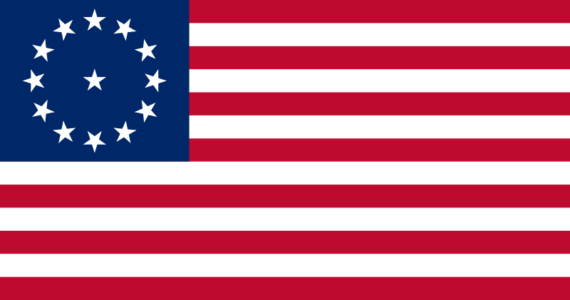
The delegates who gathered in Philadelphia to revise the Articles of Confederation, presumptuously shelving that document, concluded their work on the proposed U.S. Constitution on September 17, 1787. On another September 17th three quarters of a century later, the quarrels that had commenced at that gathering were to continue in a cornfield at the foot of the Appalachian Mountains. One hundred and sixty years after the Battle of Sharpsburg, which claimed over 23,000 lives, there is once again secession in the air, a consequence of recent election fraud and frenzied overreaching on the part of the Biden organization. Even rightwing commentators such as radio talk show host and Fox News pundit Dan Bongino are wondering if it isn’t time for a “national divorce.” On the left, comedienne Sarah Silverman thinks that America should “divide up into like (sic) two or three countries.” But the same people who have only recently discovered the full implications of the Tenth Amendment believe incongruously that U.S. Grant saved “the Republic” and that the state of South Carolina in 1860 had illicitly seceded from the union, suggestions to the contrary dismissed as racist and retrograde.
Regarding the contentious topic of disaffiliation, however, it should be considered separately from the issue of slavery and within the context of not received but unembellished history. The latter tells us that slavery is an evil that has been visited upon humanity since time immemorial, that it has been the scourge of people of all colours and that people of all colours have profited from it including Yankee slavers and ship builders, Southern planters, Arabs and the Sub-Saharan Africans who sold to the white man the souls they took prisoner during tribal warfare. This truthful history tells us that in the antebellum South there were many who detested the system of slavery or thought it an archaic institution, among them Southern diarist Mary Chestnut, the wife of James Chestnut, aide to Jefferson Davis. As the war drew to its conclusion, she wrote that she could not fathom anyone’s still thinking that he was entitled to own another person.
Unfortunately, most of those who believe that slavery, and not secession, was the cause of the conflict between the North and the South cannot be swayed by thoughtful and sober debate, and a dialogue with “the other side” about what they call the Civil War is an exercise in futility. An honest and meticulous researcher, nevertheless, would be hard pressed to conclude that abolition was Lincoln’s casus belli. Because secession robbed him of the wealth generated by the South, he counted on the Corwin Amendment with its promise of the preservation of slavery where it existed to entice the seceded states to return to the union (even though he never officially acknowledged their departure). Not one was lured back.
But though this will set heads a spinning in the present age, the motivations for the South’s disaffiliation are, in a sense, irrelevant. Because the Constitution is silent on the subject of secession, it follows, therefore, that it neither prohibits nor allows this or that justification for it. The “erring sisters,” in doing what they had a right to do, were not seeking to overthrow the central government; they were no more traitorous than New Englanders would have been had they seceded, as some of them wanted to do, rather than to have persevered in an association with slaveholders.
Most importantly, the North’s dishonourable triumph over the South did not settle the question of the indivisibility of the union. In reality, it remained an uneasy arrangement destined to fly apart again at some future point. That moment seems to have arrived.
But before permanently severing ties with the current “confederation,” a state—or parts thereof—may decide to exercise the legal remedies of nullification and interposition. The Constitution having neither penumbrae nor emanations, under its provisions, it is very clear that unconstitutional rulings by incorporationist judges or bills passed by D.C. politicians overstepping their authority may be disregarded. Laws concerning abortion, drug legalisation, marriage, behaviour in the public square—including protests at funerals for fallen servicemen—are the business of the lesser magistrate (or of the churches in the case of matrimony), not any branch of the Federal Government—executive, legislative or judicial. The Bill of Rights limits only the powers of the Feds irrespective of extratextual precedent, the problematically “ratified” Fourteenth Amendment or Biden press secretary Jen Psaki’s question begging assertion that Federal law “overrides state law.”
In those cases, however, where the central government refuses to fulfill its few and defined duties, states are free to act accordingly to protect their citizens.
“The doctrine of a compact is attended with one great inconvenience; the inconvenience, namely, that if it be violated by one of the parties, the other parties are absolved from its obligations.”[i]
Texas, for example, in the absence of Federal border enforcement, has the responsibility and therefore the prerogative to stop the illegal alien crossings that threaten the welfare of Texans. On the other hand, officials in sanctuary states and cities do not have the right to interfere with the efforts of Federal agents acting in accordance with the central government’s constitutional mandate to apprehend violators of U.S. immigration laws. In this instance, the agents are in compliance with the federative compact.
But if intermediate measures fail to secure the freedom of the people in the states, and there is a good chance that they will, the more drastic course of dissolution is available to them, and it is an appealing and likely option for good reason. The senescent Joe Biden, doing the bidding of a sinister cadre of vacuous but powerful women, some of them walking advertisements for stricter controls on legal immigration, is precipitously disenfranchising Americans, spiriting away political prisoners and, in the name of a false altruism, welcoming with open arms catastrophic multitudes of foreign invaders, among them Islamist terrorists, newly released inmates of the world’s worst prisons, traffickers in drugs and children, well-heeled, designer clothes wearing Brazilians, and George Soros financed “refugees” who have come here to benefit from a contrived and cynical victimhood. Secessionists will be faced with formidable challenges such as the need for defense against global foes armed with weaponry such as hypersonic orbital missiles and lately emboldened by America’s effeminacy and plummet into the madness of relativism, transhumanism and perpetual atonement, not to God, but to the chronically and profitably aggrieved. And as “North moves South,” there is the question of who will secede from whom. Also, there are those who will argue that a more opportune time for secession might have been two decades ago—some were calling for it back then, this writer among them. The challenges notwithstanding, even at this, the eleventh hour, secession almost certainly offers the only hope for a liberty loving and civilised remnant. Que Dieu nous aide.
[i] Albert Taylor Bledsoe, Is Davis a Traitor? (Baltimore: Innes & Company, 1866) p. 214.







One Comment